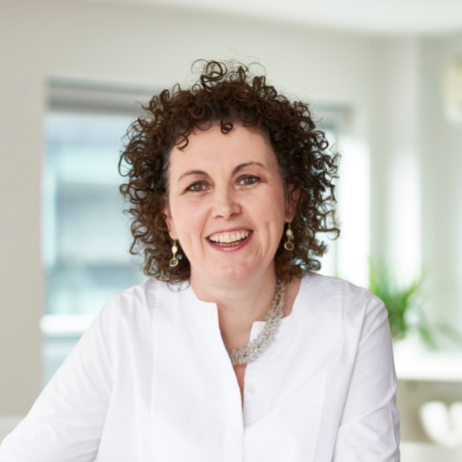Mental health in schools: Headteachers are crying out for help - and we must listen
Mental health in schools: Headteachers are crying out for help - and we must listen

Catherine Roche
Chief Executive - Catherine began her career in teaching before completing an MBA and joining KPMG. In 1996, her pro bono support for Place2Be inspired her to join the charity as Chief Operating Officer, and then Deputy CEO. In 2014, she became Chief Executive and has driven the organisation’s growth.
Our Chief Executive Catherine Roche hears about the challenges Headteachers at Place2Be partner schools are currently facing and reflects on where we go from here.
At this time of year, as the nights draw in, it’s quite normal for many of us to feel a little low. Add to that the cost of living crisis, a war in Europe and the aftershocks of the Covid pandemic, and many families and young people are feeling the pressure.
1 in 6 children and young people have a probable mental health condition. This means there are over 1 million children and young people in England with probable mental health conditions. While this is worrying, it is perhaps not a surprise. The impact is also being felt in the classroom. Data from the National Governance Association (NGA), which represents school governors, shows mental health and wellbeing are in the top five priorities for all governing boards. The Autumn Statement announced an extra £2.3 billion for schools in each of the next two years. This has been welcomed. However, school leaders have urged the government to share a longer-term plan with investment in education at its heart.
The new Government’s plans to support children and young people’s mental health are currently unclear. The Plan for Patients published by then Secretary of State for Health and Social Care (DHSC) Therese Coffey back in September promised to "strengthen resilience and the health of the nation", in particular, to "expand mental health support for children at school". The Autumn Statement announced an extra £3.3 billion for the NHS in each of the next two years. However, the devil will be in the detail. Whether the Government will spend any of this funding on children and young people’s mental health services is still to be confirmed. We are yet to see the results of the DHSC 10-year mental health plan, which Place2Be fed into back in June, along with over 5,000 others. Until we see further details, it is difficult to know what impact this might have on the current high levels of need across England.
We already know there is a clear link between deprivation and poor mental health. The cost of living crisis is plunging even more areas into deprivation, leaving many vulnerable families in poor-quality housing and temporary accommodation. We know this significantly affects mental health and, with it, school performance. 43% of children Place2Be supports in school communities across the UK are eligible for Pupil Premium Funding.
One of many schools we have worked with for several years is Surrey Square Primary School in the heart of South London. Co-Head Teacher Nicola Noble explains:
"The cost of living crisis is weighing heavily on people here, as well as the general instability at the moment caused by the change of PM and the death of the Queen. Housing for us remains a massive issue; living in temporary accommodation profoundly affects children's and families' wellbeing. We need a change of stance, a realisation of the actual issues. We need reform of the education system to reflect what's important."
The story is similar at Mellers Primary School in Nottingham, where Executive Head Teacher, Amanda Dawson, has seen how energy costs have spiked a reliance on the school and significantly increased anxiety in the school population:
"Parents are increasingly anxious about what the winter months will hold regarding energy costs and the cost of living rise. We’ve had a spike in parents needing to use our food store, and supporting parents through the next few months is an objective of the school development plan.
"Potential fuel poverty, the significant rise in the cost of living and the anxiety that goes with those things are huge themes for most of our families. We are living in increasingly uncertain and unstable times; the political climate is challenging, and our school community is taking the brunt of this."
Her message to government ministers: "Secretaries of State need to listen to leaders in communities like ours, and commit to giving us the support we need."
Ashleigh Sheridan, Head Teacher from Ribbon Academy in Murton in the North East, agrees:
"We continue to see poor mental health and wellbeing across our school, particularly amongst parents and carers. Issues have been amplified by the pandemic. Access to services, which were already stretched, has been increasingly difficult. Many parents and carers are at crisis point and, tragically, some have even taken their own lives."
On the frequent ministerial changes, she adds: "If schools had experienced as many changes in leadership, (in such a short period of time) they would be deemed 'inadequate'. Ministers need to listen with a large measure of understanding and common sense. Not every school is fortunate enough to have Place2Be on site."
While we cannot solve the cost of living crisis, we know it is possible to support young people’s mental health by giving them the skills to cope better with life’s challenges. For over 28 years, our expert teams have worked in partnership with schools across the UK. We have seen how specialist support and involving the whole school in creating the right environment can transform children from anxious, fearful and under-achieving, to thriving young people able to cope with whatever life throws at them.
It is tempting during an economic crisis to make cutbacks rather than invest. Times are hard. But this is not the time to turn back – now more than ever. We need to create a generation of children and young people that are resilient, strong and emotionally intelligent.
Moral implications aside, research from the independent body Pro Bono Economics shows early intervention in mental health demonstrates value for money (every £1 invested in Place2Be’s counselling services generates £8 in economic benefits to society). It is essential we intervene early and that Health and Education departments work together to focus on early intervention. We believe every school should have access to targeted mental health support, which must be embedded across the school to ensure no one is left behind.
Finally, we need to listen to our Head Teachers, teachers, and other school staff, who are supporting our young people day in and day out. Addressing mental health issues needs to be at the heart of schools' work, focusing on genuine long-term recovery. For many of the children that Place2Be supports, school is about much more than a place to learn. As the Head Teacher of Goldfinch Primary in Streatham said to me recently, “We are the calm in the chaos of home lives”.
News & blogs

The Young BAFTA Roadshow with Place2Be arrives in Birmingham
Read the press release of the Young BAFTA Roadshow visit with Place2Be at Birmingham.
Read more
The Young BAFTA Roadshow with Place2Be arrives in Oldham, Manchester
Read the press release of the Young BAFTA Roadshow's visit with Place2e at Oldham, Manchester.
Read more
The Young BAFTA Roadshow with Place2Be arrives in Enfield
The Young BAFTA Roadshow with Place2Be arrives in Enfield on 1 July 2025.
Read more



